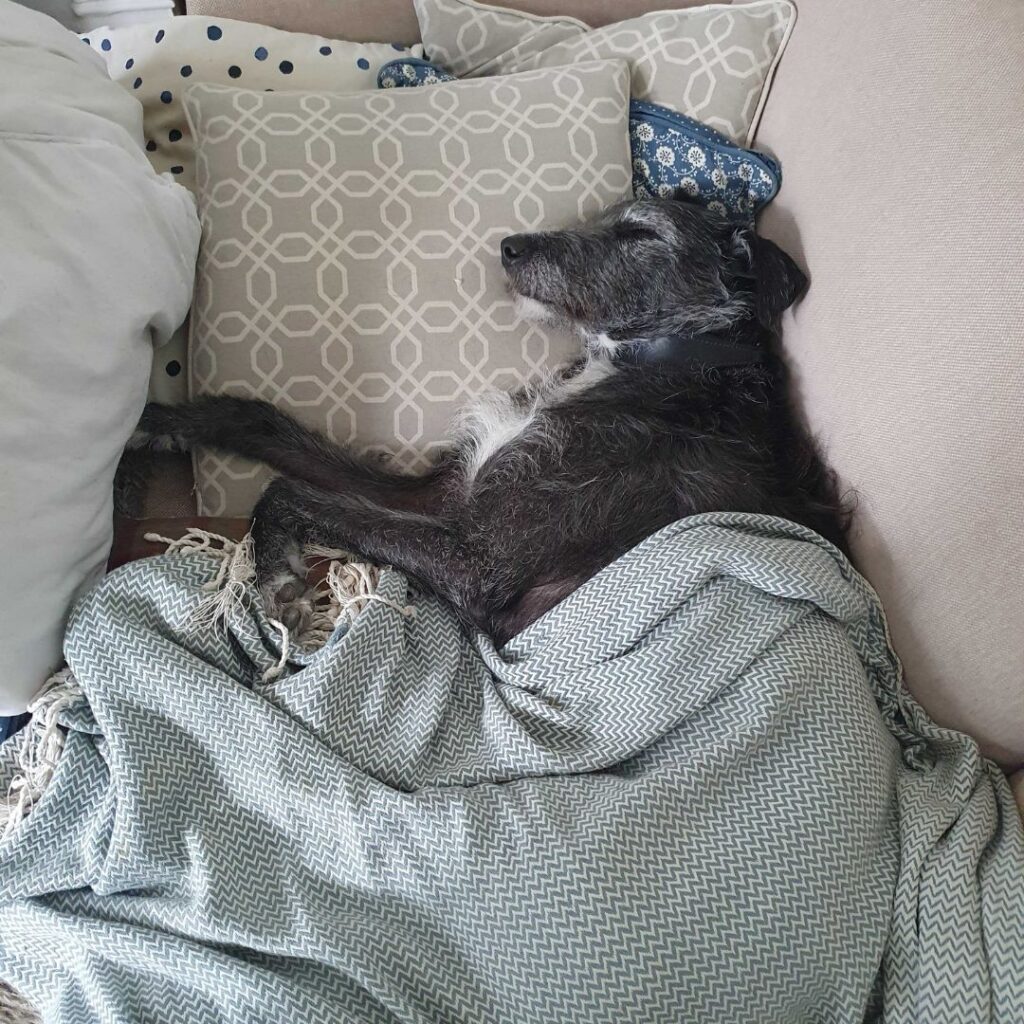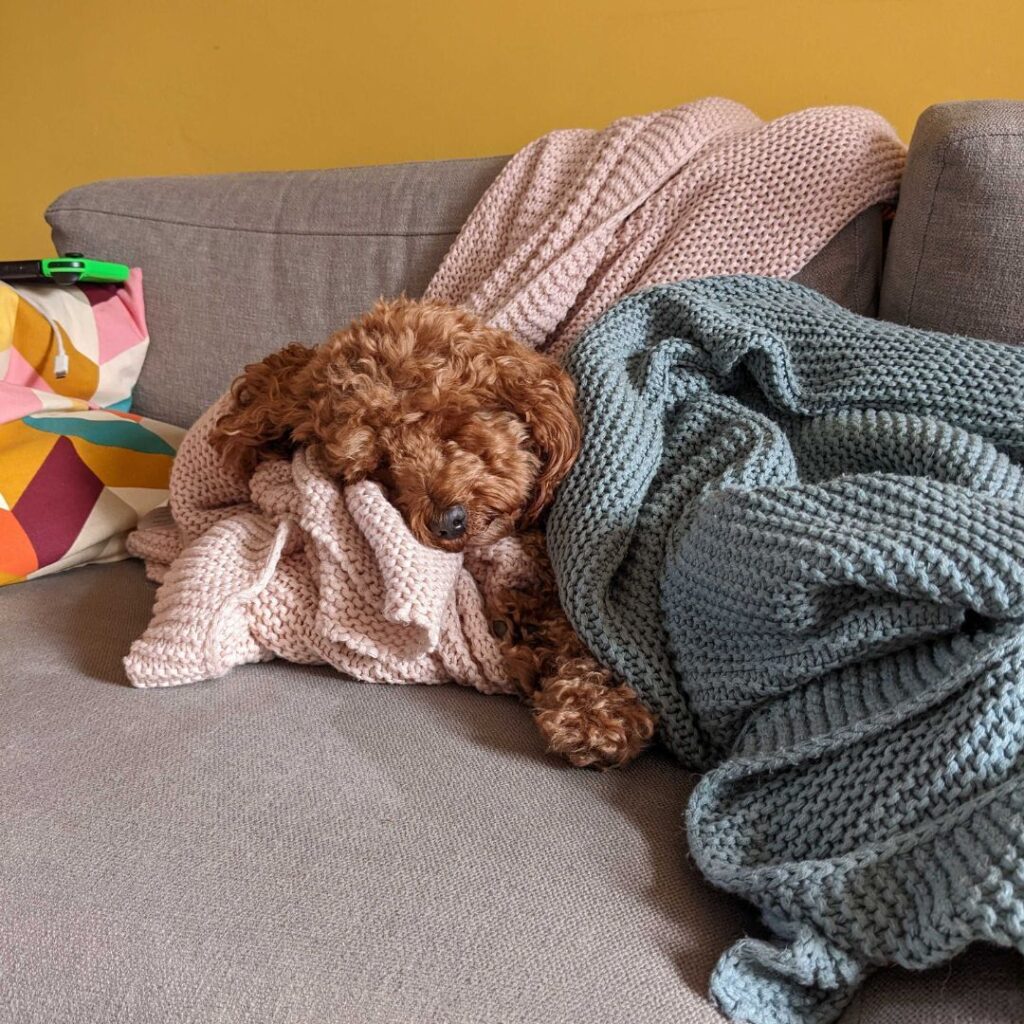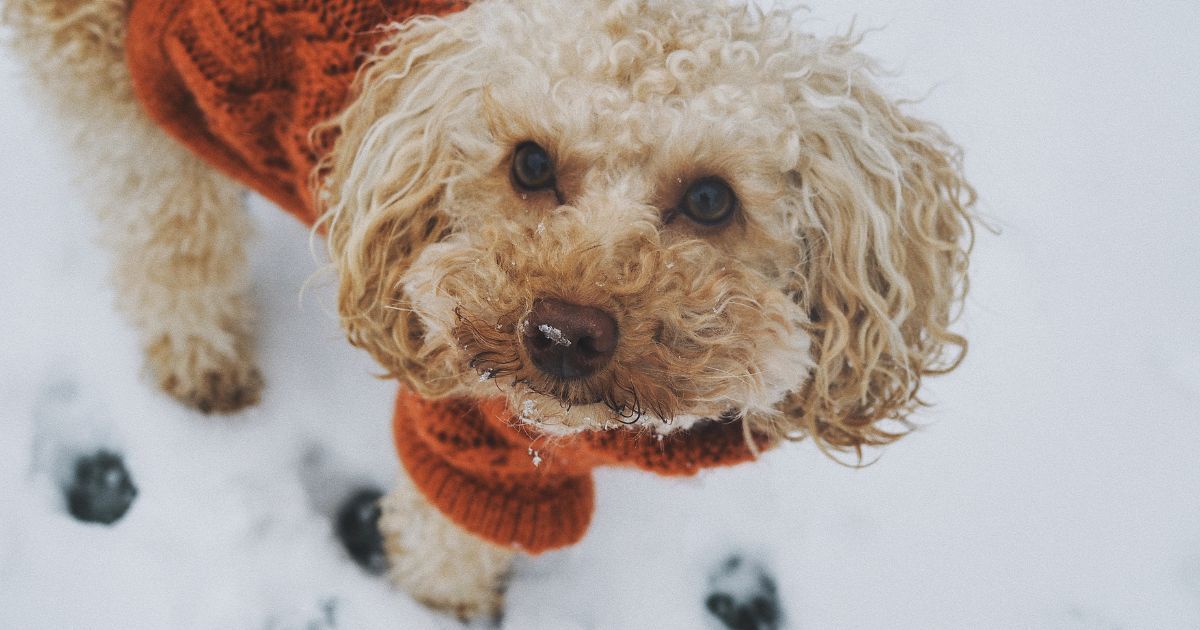We’ve all been there; runny nose, sore throat, hacking cough – colds can make us feel truly miserable. We humans regularly pick up viruses from those around us. But we got to thinking… Can dogs catch a cold from their humans?
We asked tails.com’s resident Registered Veterinary Nurse Amy – can we pass a cold on to our dogs? And what symptoms should we look out for? Here’s what she told us:
“Whilst it might look like your dog has a cold, the good news is that dogs can’t technically catch colds from their owners. They can, however, catch respiratory infections from other dogs. These can look a lot like a human cold.”
It’s reassuring to know our dogs can’t catch human colds, but what about their doggy equivalents?
Common dog respiratory illnesses
By far the most common upper respiratory infection in dogs is kennel cough.
Kennel cough (infections tracheobronchitis)
Like human colds, kennel cough is a type of illness that can easily spread from one dog to another. These can be passed on through bacteria or viruses, either by direct contact or from something in your dog’s environment. Similar to human flu there’s several different strains out there, and some are stronger than others.
Humans don’t generally contract kennel cough. However, people with severely compromised immune systems should take extra care when interacting with infected dogs, as there is a very small chance that the bacteria could pass to them.
Kennel cough symptoms
Kennel cough can develop a couple of days to three weeks after exposure, and can last for up to three weeks. The most telling symptom is a hacking cough which might look like your dog has something stuck in their throat.
Top tip: We’re always being asked, what does kennel cough sound like? Believe it or not, it makes your dog honk like an angry goose!
Other kennel cough symptoms include:
- A runny nose
- Sneezing
- Loss of appetite
- A raised temperature
- Discharge from the eyes

If you notice any of these and are worried about them, then contact your vet.
There’s an optional vaccine available to help protect dogs against kennel cough. Registered Veterinary Nurse Amy recommends discussing it with your vet:
“You can discuss getting a kennel cough vaccination with your vet. If your dog attends a busy daycare or holidays in kennels, these places will likely recommend the vaccine. This helps to minimise the spread of germs. Like the human flu vaccine, it doesn’t offer 100% protection. But it’s far better at preventing infection than not vaccinating. Administered via a quick nasal spray, it’s normal for dogs to experience mild kennel cough symptoms for a few days after.”
Pneumonia in dogs
Similar to humans, dogs can develop pneumonia. Caused by either an infection or inflammation of the lungs, pneumonia can cause difficulty breathing.
Symptoms of dog bacterial pneumonia are similar to kennel cough, but you might also notice that your energetic and walkie-loving pooch is suddenly lethargic and disinterested in things they normally love. Dogs can also display signs of dehydration, wheezing and irregular breathing.
If you notice any of these symptoms, head to your vet as soon as possible for a full check. With early detection and appropriate treatment, most dogs should make a full and speedy recovery from pneumonia.

What else could cause a dog cold?
Other illnesses such as distemper, parainfluenza and adenoviruses can all cause cold-like symptoms for dogs.
There are other possible causes for coughing and lack of appetite too. Dogs with allergies, for example, might display similar symptoms to a common cold. If you’re not sure about whether their symptoms are a result of an allergic reaction, it’s best to speak to your vet.
How do dogs catch a cold?
Dogs catch cold-like illnesses in a similar way to humans. Amy broke the infection process down for us:
“This happens through airborne droplets or from direct contact with another dog. Many of the early symptoms might manifest themselves like a human infection too – coughs, sore eyes, sneezing or a raised temperature.”
How can I prevent my dog from catching a cold?
While they can’t catch our human colds, doggy equivalents are often just as contagious. Dogs can spread illnesses to each other very easily.
Depending on the cause of your dog’s illness, they can be contagious for several weeks – even if they’re no longer showing any symptoms. And in some cases, like kennel cough, it’s possible for them to catch it multiple times (poor pups!)
To reduce the chances of your dog catching a canine “cold”, you can:
- Maintain a healthy diet– offer a nutritionally complete diet and regular exercise. With tails.com, your dog gets their very own kibble blend that’s targeted to support your dog’s age, lifestyle and health conditions, giving them everything they need.
- Limit sharing – where possible, try and make sure they have their own food and water bowls and aren’t sharing their toys or beds with others.
- Wash your hands – although dogs can’t catch colds from humans, we can pass some viruses from one dog to another through stroking them. Regularly cleaning bowls, beds, leads and collars can also help reduce the risk of spreading germs.
- Keep them separate – try and keep sick dogs away from others, particularly if you’ve got multiple pets at home.
- Get vaccinated – stay up to date with vet-recommended vaccinations, and discuss getting your dog vaccinated against kennel cough also.
- Avoid the collar – your dog’s trachea might be sensitive if they’re struggling with an infection. You could walk on a harness in the meantime, to avoid any pressure on the area.
Caring for your dog when they have a cold
When they’re under the weather there’s a chance our dogs are experiencing all the things that make us feel miserable when we’re unwell too.
There are some things you can do to make your dog more comfortable when they have a ‘cold’:
- Shorter, gentler walks – if your dog is lacking energy, consider shortening their daily walk to just a slow sniff around the block. Try to avoid popular dog areas, even if there’s no one around, to reduce the chances of passing something on.
- Feed soft foods – if they have a sore throat or are congested, softer food might be more manageable. Try pouring some boiled water over their tails.com kibble (and serve once cool) to soften it. Or feed them a nutritionally complete wet food, like tails.com wet food.
- Avoid the collar – your dog’s trachea might be sensitive if they’re struggling with an infection. You could walk on a harness in the meantime, to avoid any pressure on the area.

We asked Amy for her advice too:
“If your dog is showing signs of a respiratory infection, I’d always suggest that you seek advice from a vet. Remember, they can’t tell us what’s wrong. So vet checks are important to get them the care they need. Some dogs might need medical treatment, even if symptoms are mild – especially if they’re a puppy, senior, or have underlying health issues. Thankfully though, most of the time a doggy cold will clear up on its own within a couple of weeks. Remember never to give your dog any medication intended for human colds, as although the symptoms might appear similar, this could make them very unwell. ”
Snuggle up
So, can dogs catch a cold from humans? Not officially, no, but they do pick up similar cold-like illnesses from each other in the same way we do.
The good news? Whilst you’re both feeling blue, snuggling up under the duvet with your beloved pup won’t put either of you at risk, so grab that honey-and-lemon (or a warm kibble equivalent) and settle in for some R&R…


Thank you I found the information very helpful